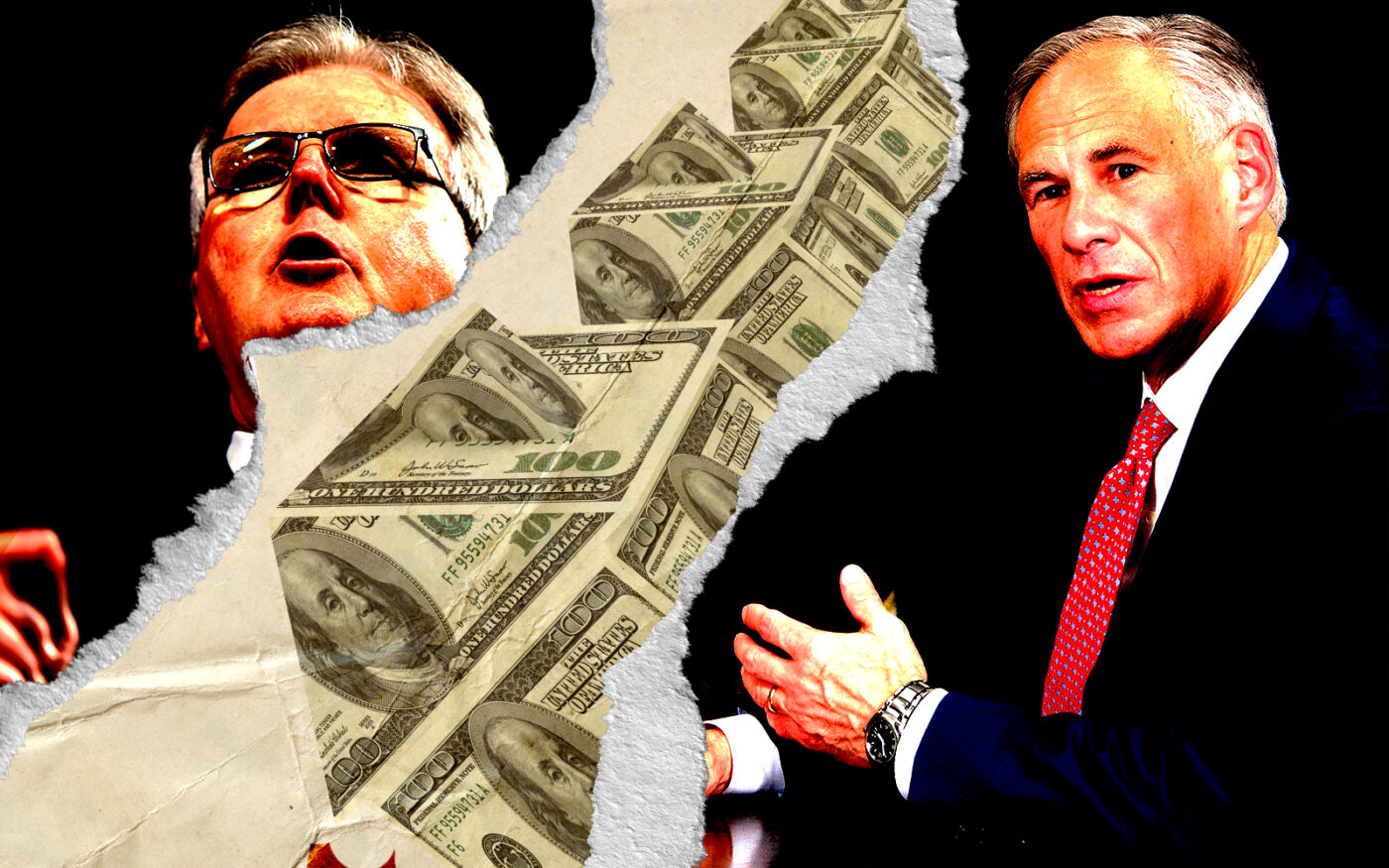 “It's a little scary”: Texas battles over future of property taxes
“It's a little scary”: Texas battles over future of property taxes
Trending
GOP squabbles over property tax in Texas
Gov. Greg Abbott wants to “end property taxes,” which Lt. Gov. Dan Patrick calls “fantasy”

Texas lawmakers continue to squabble over property taxes.
Dueling proposals between Gov. Greg Abbott and Lt. Gov. Dan Patrick to cut property taxes came to a stalemate Friday, prolonging a legislative session that sparked an unusually public clash between Texas conservative heavyweights, the San Antonio Express-News reported.
The disagreement centers around the $17.6 billion earmarked for property tax cuts in Texas’ two-year state budget. While $5.3 billion is already dedicated to sustaining relief measures passed in 2019, lawmakers can’t agree on what to do with the remaining $12.3 billion.
Abbott is firm on solely focusing on driving down school tax rates to “end” property taxes.
“Texans want to own their own property, not rent it from government. We must provide that by eliminating property taxes in Texas,” Abbott said at the Texas Public Policy Foundation.
Texas has no income tax, and sales tax is the state’s biggest form of revenue. Property taxes pay for things like schools, police, fire departments and streets.
Patrick, who presides over the Texas Senate, referred to Abbott’s plan as “a fantasy,” during a radio interview last week.
“The problem with that is, the first time the sales tax (revenue) drops in a down economy, then you don’t have the money to maintain it, so your property taxes would skyrocket,” Patrick said. “And secondly, we wouldn’t be able to pay our bills.”
Read more
 “It's a little scary”: Texas battles over future of property taxes
“It's a little scary”: Texas battles over future of property taxes
 Huge property tax cuts proposed
Huge property tax cuts proposed
 Complaints on Texas’ property tax near fever pitch
Complaints on Texas’ property tax near fever pitch
Patrick’s plan involves a combination of lowering property tax rates and raising the state’s homestead exemption for school taxes. House Speaker Dade Phelan supports Abbott’s approach. The Texas House passed a bill last week that focuses on driving down school taxes but leaves the homestead exemption unchanged, the outlet said.
The House promptly adjourned for the session, essentially leaving it to the Senate to accept its proposal or force a special session.
—Quinn Donoghue




